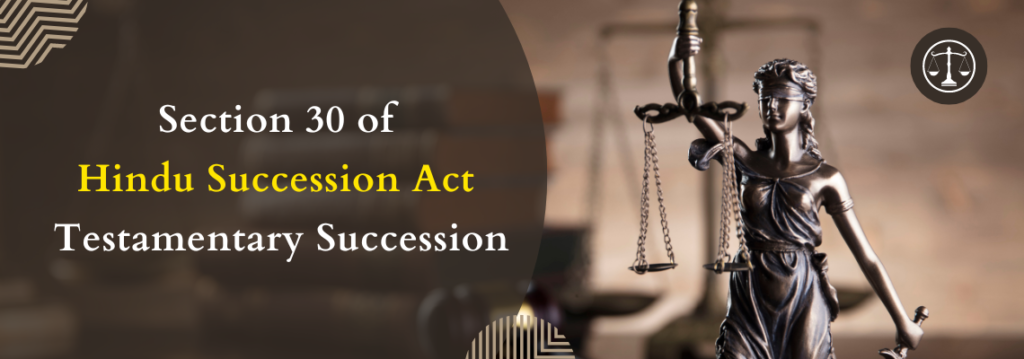Testamentary succession
Any Hindu may dispose of by will or other testamentary disposition any property, which is capable of being so [disposed of by him or by her], in accordance with the provisions of the Indian Succession Act, 1925, or any other law for the time being in force and applicable to Hindus.
Explanation
The legal transfer of property through a WILL or TESTAMENT. Any male or female may create a Will under Hindu law to bequeth their property or asset to anyone of their will and wish. Any person who had died without executing any instrument for passing over his title over any property would be termed as died intestate.
Order XV of CPC Disposal of the Suit at the First Hearing
This order gives enormous power to the court of law to dispose any suit at the first hearing itself provided the following rules are satisfied
Parties not at issue
Where at the first hearing of a suit parties are not at issue on any question of law or of fact, the Court may at one Pronounce judgment.
There is no bar against the admission of the claim by one of the several defendants and a decree can be passed against him. Further, the decree against one of the defendants shall be no bar to further prosecution of the suit against the other remaining defendants.

One of several defendants not at issue
Where there are more defendants than one, and any one of the defendants is not at issue with the it plaintiff on any question of law or of fact, the Court may at once pronounce judgement for or against such defendant and the suit shall proceed only against the other defendants.
Whenever a judgement is pronounced under this rule, a decree shall be drawn up in accordance with such judgement and the decree shall bear the date on which the judgement was pronounced.
Parties at issue
Where the parties are at issue on some question law or of fact, and issues have been framed by the Court as hereinbefore provided, if the Court is satisfied that no further argument or evidence than the parties can at once adduce is required upon such of the issues as may be sufficient for the decision of the suit, and that no injustice will result from proceeding with the suit forthwith, the Court may proceed to determine such issues, and, if the finding thereon is sufficient for the decision, may pronounce judgment accordingly, whether the summons has been issued for the settlement of issues only or for the final disposal of the suit. Provided that, where the summons has been issued for the settlement of issues only, the parties or their pleaders are present and none of them objects.
Where the finding is not sufficient for the decision, the Court shall postpone the further hearing of the suit, and shall fix a day for the production of such further evidence, or for such further argument as the case requires.
Failure to produce evidence
Where the summons has been issued for the final disposal of the suit and either party fails without sufficient cause to produce the evidence on which he relies, the Court may at once pronounce judgment, or may, if it thinks fit, after framing and recording issues, adjourn the suit for the production of such evidence as may be necessary for its decision upon such issues.

